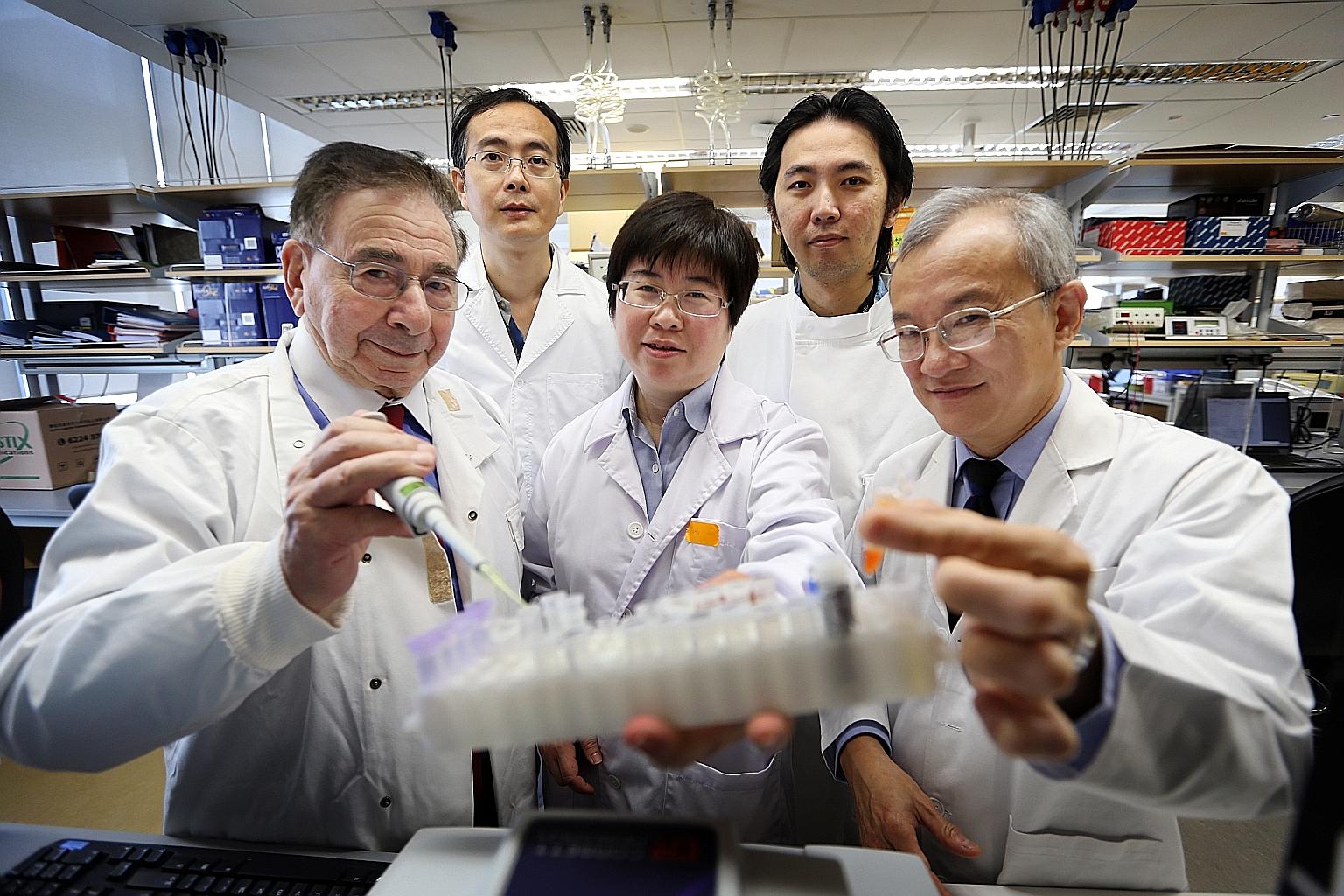One gene jab to replace daily jabs of insulin
Breakthrough could lead to better control of diabetes, but research still in early stages
Sign up now: Get ST's newsletters delivered to your inbox

The team behind the research include (front row, from left) Sir Roy, Dr Gan Shu Uin and Professor Lee Kok Onn; (back row, from left) Dr Fu Zhen Ying and Dr Sia Kian Chuan. They have so far received around $3 million in grants for the project from the Kidney Dialysis Foundation.
PHOTO: LIANHE ZAOBAO
Daily insulin jabs to treat diabetes could one day be replaced by a single intravenous injection that sends an insulin-producing gene to the liver.
Researchers from the National University of Singapore's (NUS) Yong Loo Lin School of Medicine have successfully transported such a gene to the livers of diabetic mice. These mice were then able to produce insulin normally again.
The findings of the mouse study were published in January in the scientific journal Current Gene Therapy.
The mice lived to 400 days, or half their average lifespan. That is four times longer than untreated diabetic mice, which got very sick by day 100, and had to be euthanised based on research protocols.
Diabetes develops when the body does not make enough insulin or is unable to use it properly.
Diabetic people are put on medication, and, for some, insulin has to be supplied to the body through daily injections.
Overall, diabetes rates in Singapore have risen, from 8.6 per cent of the adult population in 1992 to 11.3 per cent in 2010.
This would have gone up to 12.9 per cent by last year, according to epidemiologists at the NUS Saw Swee Hock School of Public Health.
While this form of gene therapy is still in its early stages and could take 10 years to reach clinical trials, the NUS researchers said it has the potential to put an end to pain and other discomfort that come with daily insulin jabs.
In their work, the team made use of a liver-homing virus called AAV2/8 to carry the insulin-producing gene into the mice.
When injected into the tail of a mouse, the virus, which was carrying the gene, transported itself through the body and made its way into the liver. The liver subsequently went on to produce insulin.
Dr Lim Kai Hung, a family physician at Lifescan Medical Centre, said the breakthrough could lead to better control of diabetes.
"It eliminates the need for a daily insulin injection, thus improving compliance issues, and there may also be potential cost savings to the individual patient should this gene therapy be affordable," he said.
Gene therapy is being researched globally to treat various diseases and involves putting a gene in a desired target organ.
University College London researcher Amit Nathwani has successfully used gene therapy to treat haemophilia B patients using the same virus but a different gene. The patients are still benefiting from the treatment now, after four years.
He is also a collaborator of the local study.
Sir Roy Calne, visiting professor at the NUS medical school and co-leader of the local project, said the next step is to treat dogs which are naturally sick with diabetes, where they face either being put down or being given two insulin injections per day.
The team of five have received approval in Britain to carry out trials on six dogs, and are in the midst of seeking approvals for a similar trial here.
They have so far received around $3 million in grants from the Kidney Dialysis Foundation to carry out the research project.


